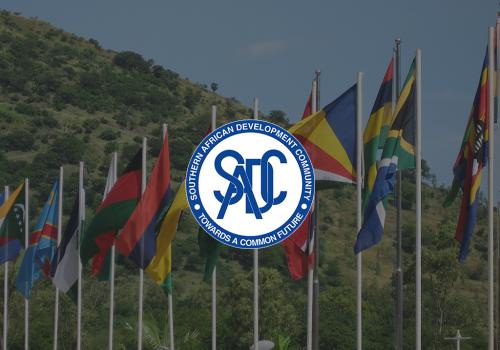The Southern African Development Community (SADC) has taken a decisive step toward confronting the region’s escalating humanitarian and climate crises by hosting the first-ever Joint Ministerial Meeting on Forced Displacement, Fragility Mitigation, and Climate Resilience.
Held virtually, the meeting brought together Ministers responsible for Disaster Risk Management, Climate Change, and the Organ on Politics, Defence and Security Cooperation. The event marks a bold commitment to addressing Southern Africa’s most pressing, interconnected challenges through unified regional action.
In his opening address, Honourable Mr. Daniel Garwe, Zimbabwe’s Minister of Local Government and Public Works and Chairperson of the SADC Committee of Ministers on Disaster Risk Management, underscored the urgency of the moment. “Fragility across the region is intensifying,” he said, “driven by socio-political instability, economic hardship, and environmental degradation.” He called for operationalising the Humanitarian–Development–Peace Nexus, improving data systems, and investing in regional resilience.
According to recent assessments by the United Nations High Commissioner for Refugees (UNHCR) and the International Organization for Migration (IOM), over 11.4 million people in the SADC region are currently forcibly displaced, a 34.5% increase since 2023. This includes more than 10.2 million internally displaced persons and 1.2 million refugees and asylum seekers, with displacement often triggered by conflict, political unrest, and climate extremes such as droughts and floods.
The Democratic Republic of Congo remains the region’s displacement epicenter, while countries including Malawi, Mozambique, Zambia, and Zimbabwe face widespread El Niño-induced migration. In Madagascar, prolonged drought which has been exacerbated by climate change in recent years, has prompted internal migration and increased tensions in host communities.
SADC Executive Secretary H.E. Mr. Elias Magosi highlighted the intersecting nature of these crises, noting the need for integrated, evidence-based solutions. “These figures are more than statistics, they represent human lives disrupted by cascading risks,” he said, reinforcing the imperative for cross-sectoral coordination, agile financing, and stronger data systems.
To address these challenges, SADC Ministers endorsed the establishment of a Regional Programme on Forced Displacement, Fragility Mitigation, and Climate Resilience. The initiative will be rooted in the Humanitarian–Development–Peace Nexus and will prioritise:
Information management and data systems
Resource mobilisation, including engagement with climate finance and the private sector
Integration of forcibly displaced persons into national development plans
Support for regional climate risk governance and preparedness
The meeting also acknowledged the shifting global financing landscape and identified the Multilateral Development Banks’ Coordination Platform on Forced Displacement as a key opportunity for mobilising resources.
As part of the outcomes, Ministers agreed to develop a costed regional action plan, convene biennial progress reviews, and strengthen partnerships that ensure the region’s responses are inclusive, sustainable, and future-ready.
This inaugural Joint Ministerial Meeting reflects a renewed commitment by SADC to protect its people, sustain development gains, and build long-term resilience in the face of evolving regional and global shocks.

